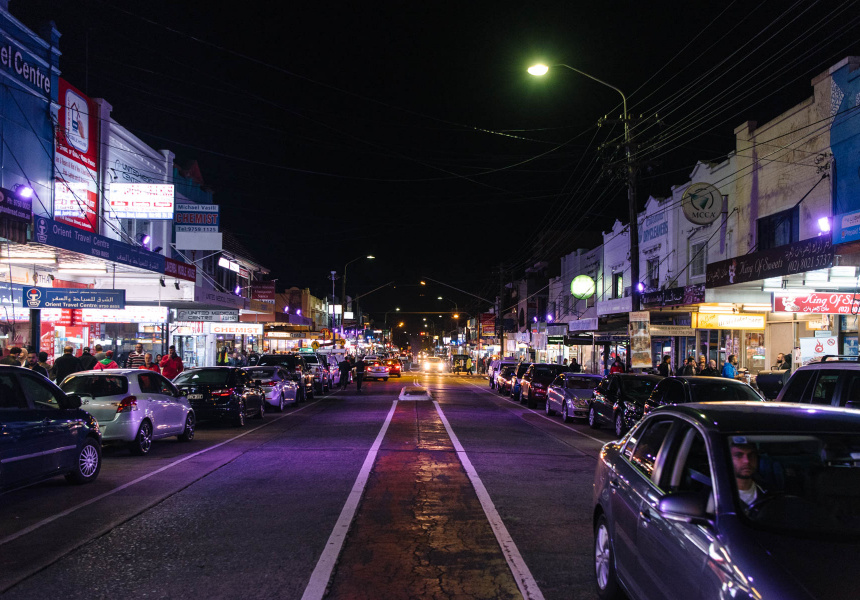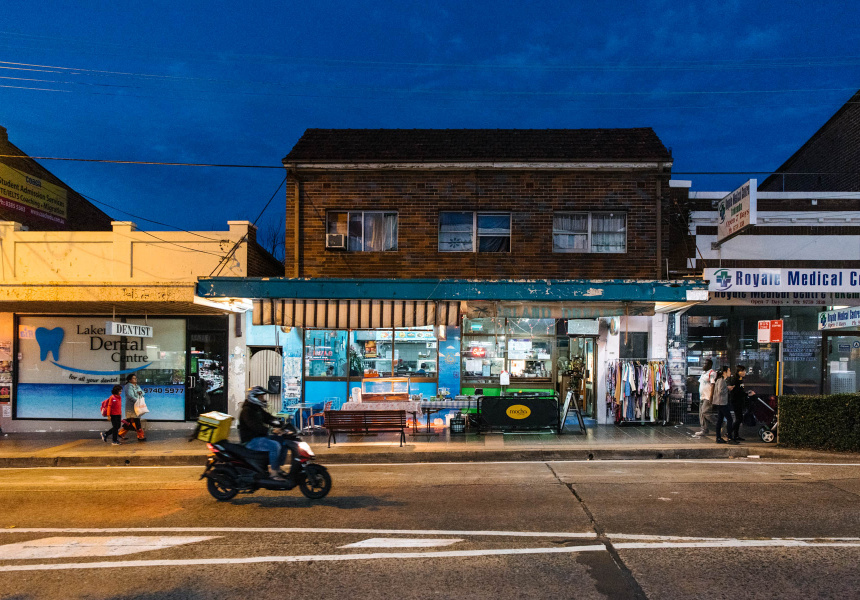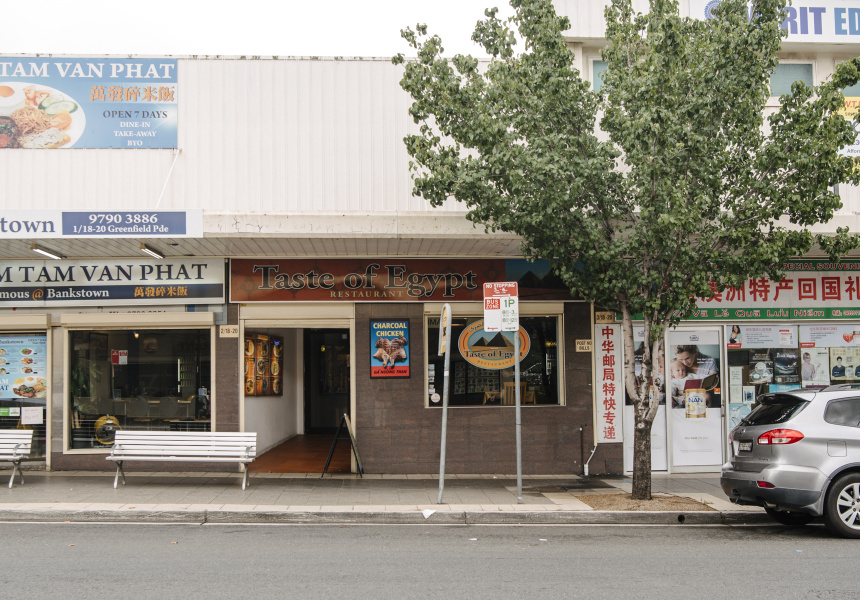Having a police officer approach you on horseback asking you to justify why you’re outside your home is, at the very least, disconcerting.
But for many weeks it’s been a common occurrence in Canterbury-Bankstown, Fairfield and Liverpool. Not long after Sydney’s current lockdown began, these south-western Sydney regions became epicentres of the city’s Covid-19 outbreak and were classified “local government areas of concern” by NSW Health. The police presence has been strong and lockdown rules tough.
“Some who are refugees and asylum seekers living in these areas have a lot at stake,” Marjorie Tenchavez, founder of Welcome Merchant, a platform that promotes businesses run by refugees and asylum seekers, tells Broadsheet. “Having the extra police presence is quite triggering.”
We think you might like Access. For $12 a month, join our membership program to stay in the know.
SIGN UPAmeen Bushter, founder of Fairfield’s Baraka Bakery, says it’s hard on residents, and hard on businesses in turn. “Obviously the police are there to serve and protect, but nobody wants to get approached by the police,” he says. “Having such a heavy presence in any neighbourhood, whether it’s Fairfield or the North Shore, people automatically get that feeling they’re doing something wrong and they end up staying home. It affects business.”
The pressure and fear created by rising case numbers, lockdown and a heavy police presence has hit businesses hard. Bushter opened his bakery in late 2019 to give his dad, who migrated from Iraq in the ’90s, freedom from exploitative employers. He and Bushter’s sister Yosra work full time in the bakery making Iraqi and Iranian breads. One popular item is samoon, an Iraqi diamond-shaped flatbread. The Fairfield bakery sells samoon and other flatbreads to bakeries and grocery stores around Sydney.
For Fairfield locals, Baraka makes a special low-GI samoon from barley and whole-wheat, catering to the older Arab demographic in the area. “With Delta strain, we’ve seen a decline in the demand for samoon. People with diabetes are sacrificing that part of their diet in favour of staying home.”
Carmelina Catanzariti, general manager of Fat Franks, has seen an extreme drop-off in business.
“Our Wetherill Park shop is located in a complex, which has impacted us massively – and as soon as the tradies stopped working, that made it worse.”
But the lockdown isn’t just affecting the bottom line. Morale among business owners and workers is low.
“You’re not opening a bakery to make money. You sell loaves of bread for two or three bucks, you’re not making a lot. You’re doing it for the craft of being a baker, and you’re doing it for your community,” Bushter says. “What’s the point in coming to work if there are barely any customers?”
Catanzariti also finds it difficult. “It’s so hard trying to find motivation when you turn up and there are no cars in the centre and the only people walking into the store are Uber drivers. It’s hard to motivate staff when you’re feeling crap and you have to cut shifts.”
Mohammad Anwar, a Rohingyan refugee from Myanmar had a dream to open a Burmese restaurant. He opened Lucky Myanmar in June on a busy strip near Lakemba train station, selling chicken, beef, lamb and goat curries, and sweet paan, a textural palate cleanser of toasted aniseed, crunchy candied fennel and sticky, peppermint-oil-laced preserved fruit wrapped in a fresh betel leaf.
“There’s no restaurants like this in Sydney and it’s been my dream,” says Anwar. “My business partners and I opened for three or four days and it was good, but then lockdown came. We tried for two, three weeks to sell, but no one came. We’re a new business, we don’t have an online system and there were no people walking by. Everyone is scared about this virus, [so they’re] buying groceries for cooking at home.”
Although Anwar doesn’t have a back-up job, he and his partners decided to close the eatery until lockdown ends. He’s worried, but understanding.
“It’s ok, I’m just a little bit sad. Everyone who opens a store right now, it’s hard for them. I hope one day we can open again.”
Seeing business decline so rapidly is devastating. While Jobkeeper subsidies provided a lifeline for hard-hit businesses during last year’s lockdown, there’s very little in the way of government help this time around, apart from small grants that exclude many and may not leave much of a dent in business expenses. Those who have been able to stay open have come up with creative ways to make money.
Baraka continues to offer wholesale around Sydney, and it’s hiring out its massive ovens to cook for the community. Twice a month a family might bring a whole lamb to roast for the day.
Organisations like Welcome Merchant are running fundraisers and raising awareness through social media. A recent campaign raised nearly $6000 for five struggling businesses in the Welcome Merchant network.
Catanzariti says the geographical distance from the Sydney CBD exacerbates the problem. Businesses don’t get as much media attention and rely on local community.
“At the beginning of lockdown people were spending money, but now that it keeps getting extended, people are being more frugal and cooking at home,” she says.
“I think no one is seeing an end at the moment. It’s hard to plan and motivate yourself to keep going. It’s frustrating as a business owner. We feel very alone.”



